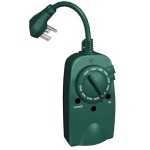How To Seal Untreated Wood For Outdoor Use
Outdoor wood furniture, fences, decks, and other structures require protection from the elements. Untreated wood is especially vulnerable to moisture damage, insect infestation, and UV degradation. Sealing untreated wood is a crucial step in prolonging its lifespan and maintaining its aesthetic appeal. This article outlines the process of effectively sealing untreated wood for outdoor applications.
Key Considerations Before Starting
Proper preparation is essential for successful sealing. Several factors influence the choice of sealant and application method.
- Wood Type: Different wood species have varying densities and natural oils. Hardwoods like cedar and redwood are naturally more resistant to decay than softer woods like pine and fir. This affects sealant choice and application frequency.
- Climate: Regions with high humidity, extreme temperatures, or intense sunlight require more durable sealants and more frequent reapplication.
- Project Location: Wood in direct contact with the ground requires more robust protection than wood elevated above ground.
- Desired Finish: Sealers come in various finishes, from clear to semi-transparent to solid colors. The desired aesthetic outcome influences sealant selection.
Preparing the Wood Surface
A clean and dry surface is crucial for effective sealant penetration and adhesion.
- Cleaning: Remove dirt, debris, and mildew using a stiff brush, wood cleaner, or a pressure washer. For mildew, use a solution of bleach and water (one part bleach to four parts water). Allow the wood to dry completely.
- Sanding: Smooth the wood surface with sandpaper, starting with a coarser grit (e.g., 80-grit) and progressing to a finer grit (e.g., 120-grit or 220-grit for a smoother finish). Sanding opens the wood pores for better sealant absorption and removes any remaining dirt or weathered wood.
- Repairing: Fill any cracks, holes, or imperfections with wood filler. Allow the filler to dry completely and sand smooth.
Choosing the Right Sealant
Several types of sealants are available, each offering different levels of protection and aesthetic properties.
- Oil-Based Sealants: Penetrate deep into the wood, offering excellent protection against moisture and rot. They enhance the natural grain and color of the wood but require more maintenance and reapplication.
- Water-Based Sealants: Easier to apply and clean up, with low VOCs (volatile organic compounds). They offer good protection but may not penetrate as deeply as oil-based sealants.
- Varnish: Forms a hard, protective film on the wood surface, providing good resistance to scratches and abrasion. Available in various sheen levels, from matte to high gloss.
- Paint-Based Sealers: Offer excellent protection and color coverage. These can mask imperfections and are available in many colors which affect how they will weather.
Applying the Sealant
Proper application technique ensures even coverage and maximum protection.
- Stirring: Thoroughly stir the sealant before and during application to ensure consistent color and performance.
- Application Method: Apply the sealant using a brush, roller, or sprayer, following the manufacturer's instructions. Work in the direction of the wood grain for a smooth and even finish.
- Multiple Coats: Most sealants require multiple coats for optimal protection. Allow each coat to dry completely before applying the next, following the manufacturer's recommended drying times.
- Back-brushing: When using a sprayer, back-brush the sealant immediately after application to ensure even distribution and penetration.
Maintaining Sealed Wood
Regular maintenance helps prolong the life of the sealant and protect the wood.
- Cleaning: Regularly clean the sealed wood surface with a mild detergent and water to remove dirt and grime.
- Inspection: Inspect the sealed wood periodically for signs of wear, cracking, or peeling. Reapply sealant as needed to maintain protection.
- Reapplication: The frequency of reapplication depends on the type of sealant, climate, and exposure to the elements. Generally, reapplication is recommended every 1-3 years for oil-based sealants and every 2-5 years for water-based sealants.
Safety Precautions
Always prioritize safety when working with sealants.
- Ventilation: Work in a well-ventilated area to avoid inhaling fumes. Wear a respirator if necessary.
- Protective Gear: Wear gloves, eye protection, and appropriate clothing to protect your skin and eyes from contact with the sealant.
- Disposal: Dispose of sealant containers and applicators properly according to local regulations.
By following these steps, individuals can effectively seal untreated wood for outdoor use, protecting it from the elements and extending its lifespan.

How To Seal Wood For Outdoor Use Diy

Can Untreated Wood Be Used Outside A Simple Explanation

Non Toxic Wood Sealing A Definitive Guide

Sealing Wood For Outdoors

How To Treat Untreated Wood For Outdoor Use 5 Methods

How To Seal Wood For Outdoor Use Diy

How To Stain Untreated Wood Olympic

How To Treat Untreated Wood For Outdoor Use The Backyard Pros

Protect Outdoor Untreated Lumber Dos Don Ts The Fun Hub

How To Treat Wood For Outdoor Use On A Budget







